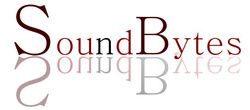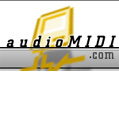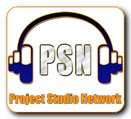December 2023 Sound On Sound, by Robin Bigwood
« At €269, for what is effectively a perpetual licence, Organteq mightn’t be a no-brainer, but for what it offers it’s a bargain. It should go straight into the shortlist of everyone who’s looking for a virtual, portable, DAW-friendly version of the king of instruments. A super new option for French Romantic and German Baroque organ sounds, utilising all the strengths of physical modelling. »
May 2023 Recording, by John Czerwinski
« The refinements that Modartt has crafted in the new Pianoteq Version 8 models have given the instruments an even warmer and more organic sound than before. It was already my go-to VSTi for much of my piano work when recording, composing and arranging––meaning it already sounded THAT impressive. If you already own a prior version of Pianoteq, upgrading to Version 8 is well worth the $30. Did I mention that it will run natively on iOS shortly? »
November 2021 SoundBytes, by David Baer
« Modartt has done an excellent job of creating a wide and very diverse range of musical instrument packs, from humble world-instrument types to highly refined ones that represent extraordinary marriages of craft and technology (those latter usually accompanied by forbidding price tags as well, of course). Once you have the basic Pianoteq platform, any of these packs are available at about the cost of a week of purchases at your local boutique coffee dispensary. There’s much, much to like here. »
June 2021 Recording, by John Czerwinski
« I own several fantastic-sounding sampled piano libraries, but Pianoteq has become my default virtual piano over the last few years. It loads quickly, sounds fabulous, and leaves enough RAM for a host of other libraries to be run simultaneously due to its paltry system requirements. When it was first introduced in 2006, it became instantly popular even as modeled pianos were a novelty item. Since then, Modartt has developed its algorithms to the point where its physically modeled instruments can actually outperform their sampled counterparts. »
May 2021 International Piano, by Danyal Dhondy
« I was sceptical as to whether such a lightweight package could compete with the expansively recorded instruments that I use regularly (some over a thousand times bigger), but it only took a few chords to dispel my doubts. On first impressions, Pianoteq 7 is a very special piece of software indeed. The default instrument is modelled on a Steinway D, fresh off the production line in New York, and it's a joy to play. It sounds just like a Steinway, with the same sweet tone and clarity across the register. Even more impressive is the feel of the instrument - responsive to every nuance, agile and delicate without a hint of the clunkiness that bedevils many virtual pianos. »
April 2021 Sound On Sound, by Robin Bigwood
« Pianoteq 7 ultimately presents an easy task to a reviewer: it’s a brilliantly refined virtual instrument that builds in meaningful ways on already formidable strengths, and is a pleasure to work with. For acoustic piano duties it’s now virtually impossible to distinguish it in quality from huge single-piano sample libraries, and the degree of sound design flexibility the modelling approach allows can easily make them look like dinosaurs. »
July 2020 CareersInMusic.com, by Robin Vincent
« If you are looking for the best virtual piano software your computer can offer, in terms of real piano sound, look no further than Pianoteq from Modartt. It’s won more awards than any other virtual piano, is endorsed by Steinway & Sons, and is probably the deepest, widest, and most beautiful. It uses physical modeling to emulate every nuance, noise, tone, and movement of real piano from hammer hardness to string length and sympathetic resonance. You can adjust the lid position, microphone placements, and the condition of the instrument. It simply sounds more authentic than any other piano and gives you an astonishing amount of control over the sound if you need it. »
July 2020 Sound On Sound, by Gordon Reid
« Recreating the sound of a pipe organ is not easy. In fact, it's bloody difficult. Nonetheless, emulations have improved considerably over recent years although the best of these - whether delivered as huge sample libraries or as physical modelling in traditional console organs - are not cheap. But now Modartt have released Organteq, a physically modelled software instrument that aims to do for pipe organs what Pianoteq has been doing for pianos for the past few years. »
September 2018 Keyboard, by Jon Regen
« After years of playing acoustic, digital and virtual pianos, I thought I had seen and heard it all. But Pianoteq 6, with its lean CPU requirements, stunning sound, and near-infinite editing capabilities is a breath of fresh air. Even if you have a go-to hardware or software piano instrument or library, Pianoteq 6 is worth a look and listen; it sounds that good. Bottom Line: It’s possibly all the piano tech you’ll ever need! »
July 2018 Sonic Scoop, by Matthew Wang
« Pianoteq 6 is a grandiose collection of physically-modeled virtual instruments that are all very musical and inspiring. And the fact that it’s only a 50MB download means it can fit on most hard drives. For this reason alone, Pianoteq will be my go-to piano for sketches, and will surely remain the final piano I use in many of my productions. Not to mention, the marimbas, glockenspiels, harpsichord, and electric pianos also all sound incredible! »
December 2016 Recording, by Paul Vnuk
« While I loved playing with the acoustic pianos and the electric pianos, as a percussionist I was most interested in the vibes, steel drums, and hand pans. I wasn’t disappointed. It’s not just about the notes or even the strikes, but also about what happens after the notes are hit. Just as the pianos have great harmonics, pedal and body noises and such, so do the drums. The metallic harmonics blend beautifully into a rich tapestry of overtones that are beyond believable. The vibes also deserve special mention as they sound like they just came off of a vintage 1950s Modern Jazz Quartet album. I’m glad I finally experienced Pianoteq for myself; it will see a lot of use in my studio and my live set for quite some time to come. »
July 2015 Keyboard, by Jerry Kovarsky
« As I wrote earlier, I approached Pianoteq as a skeptic and now stand as a true believer. These are wonderful pianos-rich and full of woody character-and are a joy to play. Every nuance of my playing came across, and you can shape the sound in ways never before possible. Version 5 improves on the clarity of all the pianos, and is well worth the upgrade if you own a previous version. If you don’t own Pianoteq yet, I strongly suggest you check it out if you use a computer for music-making and are searching for a versatile and great sounding software piano instrument. »
February 2015 Musicplayers.com, by Jason Buchwald
« Using modeling technology as opposed to a huge sample library to create piano sounds, Pianoteq delivers authentic piano sounds while only taking up a tiny sliver of storage space, handy if you dread the thought of committing half of your laptop’s SSD storage to big piano samples. Pianoteq has evolved to include a variety of additional instruments, but most importantly, the pianos themselves have been upgraded over the years to the point where we think they now stand up to the finest sampled alternatives. We have always marveled at Pianoteq’s technology, and now we can marvel at the sound, too! »
August 2014 AskAudio Magazine, by Matt Vanacoro
« Pianoteq 5 is a very welcome upgrade. The instrument has only gotten more CPU efficient over time, and is now an extremely solid piano VI. Add to that the portability of Pianoteq, it’s low impact on disk space and ease of registration (no iLok or dongle here - just a plain old serial number) and you’ve got a great piano instrument for your mobile rig (where I started using it) or studio (where I wound up using it). »
August 2012 Sound On Sound, by Robin Bigwood
« I’ll cut to the chase: Pianoteq 4 is a good bit better-sounding than any previous version. The key to this is the new D4 Steinway-based grand. It’s a much classier model than we’ve ever had in Pianoteq before, retaining the natural dynamic behaviour of its predecessors but combining it with a more commanding, complex and distinctly ‘expensive’ tone. (...) Version 4 keeps Pianoteq at the vanguard of virtual piano design, where it holds its own with any sample-based or hardware alternative. »
June 2012 Wusik Sound Magazine, by Adrian Frost
« When you load up Pianoteq for the first time what hits you is that it looks good. I'm not one for raving (yeah, right) but Pianoteq just screams quality. [...] Now we need to play something and here you're blown away. The sound is extraordinary; it's like a real piano! I guess that's the goal but it's still hard to believe that the sound I'm listening to, despite my dodgy playing, is like having a real grand piano in my little room. The sound resonates, you play one note, let it ring and play another and they interact. The sound is right but there is also a correct ambiance, you feel like you're sitting in front of a real instrument. Did I say real enough times? I think I'm in love. »
June 2012 MusicTech Magazine, by Hollin Jones
« Small is beautiful. Pianoteq seems impossibly compact for such a big-sounding instrument, but it successfully brings crystal-clear piano sounds and an astonishing level of sound tweaking to more or less any system. If you don't need the detailed note and sound-editing tools, the midrange version may be worth considering. But to get the most out of it as a sound-design tool rather than just an instrument, those tools are worth having access to. All in all, this is a remarkable instrument. »
October 2010 Future Music, by Declan McGlynn
« If you don't love Pianoteq for its tiny file size (roughly 21MB), serious flexibility, ease of use or low CPU impact, love it for its sound. Pianoteq is one of the most responsive, beautiful and delicately modelled pianos you'll play. It can be as big and bold or soft and subtle as you need it to be, even before you dive in to any mic repositioning or hammer adjustments. »
April 2010 Electronic Musician, by Len Sasso
« Modartt Pianoteq has come a long way since I reviewed version 1.0.3 in the March 2007 issue of EM, available online at emusician.com. In the interim, version 2 won EM's 2008 Editors' Choice award for Most Innovative Product. In version 3.5.2 the underlying physical model has been significantly improved, and although many of the controls are the same, you’ll find a host of user-friendly enhancements. Pianoteq now comes in Standard and Pro versions, and the difference is in the new feature called Note Edit. The Pro version gives you note-by-note access to most Pianoteq parameters, (...) »
February 2010 Piano, by Tony Cliff
« Pianoteq Pro is an extremely impressive program, allowing you to customise every conceivable aspect of your piano sound, and while the process might appear daunting, it is actually extremely intuitive in operation. [...] Playing Pianoteq Pro using a hammer-action digital keyboard really feels like performing on a quality acoustic grand piano with all the true sympathetic resonance of an acoustic instrument. [...] I am delighted to recommend both these instruments [Pianoteq Standard and Pro] as outstanding products and and I strongly advise you to test them out for yourself. »
January 2010 Keyboard Magazine, by Jim Aikin
« I was so inspired by Pianoteq's tone that I couldn't resist laying down the beginning of the piano part of a Brahms cello sonata, after which I overdubbed the cello. [...] Does it really sound like a piano? Yes, absolutely. Things like the envelope decay and the delicate interplay of overtones in the bass strings are extremely realistic. »
January 2010 Keyboard Player, by Tony Cliff
« Playing Pianoteq Pro using a weighted action digital keyboard really feels like performing on a top-quality acoustic grand piano with all the true sympathetic resonance of such an acoustic instrument. Piano afficianodos, however, will appreciate and enjoy the limitless possibilities of the individual note customisation available in the Pianoteq Pro edition. [...] I am pleased to recommend Pianoteq 3 and Pianoteq Pro as outstanding products and would advise you to test them out for yourself at the earliest opportunity. »
September 2009 Computer Music, by Lee Du-Caine
« If Pianoteq wasn't quite the finished article back in 2006, it certainly feels like it now. It sounds and looks better than ever (the interface has been given a bit of spit and polish) and the aforementioned advantages that stem from it being modelled rather than sample-based simply can't be ignored. Factor in the ability to expand the product with both acoustic and electric sounds (in addition to the optional add-ons, there's a range of free ones) and you've got what feels like the most attractive piano software currently on the market. »
August 2009 Musicplayers.com, by Jason Buchwald
« [...] At the moment, there is no other program that utilizes the modeling technology Pianoteq employs. It’s hard to believe such a relatively small program (by today’s multi-gigabyte standards) can do so much. We said in our previous review that the original product would get better with time, and it has in a big way. »
July 2009 Linux Format, by Graham Morrison
« As with real pianos, any assessment is always going to be largely subjective. But after two decades of poorly synthesised pianos and sample sets, we feel the output from Pianoteq is phenomenal. It rivals the output from the best sample sets we've heard. The bass register is particularly impressive, and thanks to the mathematical model, you get incredible dynamic range. [...] Pianoteq, without any doubt, is the best sounding piano on your Linux desktop, and probably any other desktop. »
June 2009 Linux Journal, by Dave Phillips
« Great praise to the awesome Philippe Guillaume and his brilliant crew. Pianoteq is simply amazing. Its sound quality is excellent, its user interface is attractive and invites interaction, the add-on instruments are wonderful, et cetera, et cetera. It's not free and it isn't open-source software, but its developers are certainly interested in the open-source community of music makers. In this community member's opinion, Pianoteq for Linux gets four out of four big stars (or Emperor penguins, take your pick). »
April 2009 Piano Magazine, by Tony Cliff
« I was hugely impressed with Pianoteq 3. While the overall concept is sophisticated, with the ability to customise every detail to your own taste, it is nevertheless intuitive to operate and I suspect that many of the preset sounds will happily suit most people. Playing Pianoteq 3 using a hammer action digital keyboard really feels like performing on a quality acoustic grand piano, and is genuinely satisfying and responsive. I am pleased to recommend Pianoteq 3 as an outstanding product; it is a delight to play and I strongly advise you to try it out for yourself. »
March 2009 Keyboard Player, issue 335, by Andrew Gilbert
« So, what about the all-important aspect of all this, the sound? Well, if I was impressed when I first heard Pianoteq, I'm even more impressed now. Those two years and intervening version 2 have made a real difference and the sound is excellent. I applied the sounds to all sorts of piano, electric piano and harpsichord applications, both playing live and slotting the sounds into existing piano tracks. [...] Summing up, I think Pianoteq 3 is a great product. Those impressive sounds will, as I said, be enough for many users, but the extreme controllability to adjust and create your own personal pianos to match the mood and style of what you're playing is the biggest bonus for me. »
June 2008 ProRec, by Brent Randall
« In general, Pianoteq sounds more like you are sitting in front of a real piano soundboard than any sample library does. There is that it factor that is missing in many sample libraries that helps create dynamic, believable piano sounds. And I would be lying if I didn't say I was impressed at just how closely Modartt has gotten to the pianos I grew up loving to play. »
June 2008 Mac|Life, by David Biedny
« We tested Pianoteq as an Audio Units plug-in inside of GarageBand, Logic, and Ableton Live, and its responsiveness and wonderful aural quality thrilled us immediately. While nothing is likely to ever match the full majesty and presence of an actual Steinway, Pianoteq comes close. Just plug your own weighted 88-key controller and sustain pedal into your Mac, and you’ve got an awesome piano that never needs to be tuned or polished. It’s a glorious experience, and your audience probably won’t believe that you’re not stroking actual ivories. »
January 2008 Traxmusic.org, by Devon Brent
« Finally, I feel the death knell is ringing for the overly bloated multi-gigabyte piano libraries. Not only is Pianoteq significantly smaller, the ability to manipulate the dynamics in real time is nothing short of breath-taking. Pianoteq makes you feel like you're controlling the piano performance instead of the performance controlling your piano playing. »
December 2007 Recording, by Richard Shore
« Oh boy! I played one note, all alone, on the standard generic preset that comes up when you first start Pianoteq, and I could immediately tell that this was something exciting. The immediacy, depth, warmth, and presence of hammer sound were all there in a way I have never heard before through electronics. The damper pedal was very natural and made the right kind of difference in the sound. (...) Pianoteq is without a doubt the most flexible, realistic - and tiny - keyboard application I have yet to try. Go for it! »
November 2007 ISM Music Journal, by Tony Cliff
« I was extremely impressed with Pianoteq. While the overall concept is sophisticated, with the ability to customise every detail to your own taste, it is nevertheless easy to operate, and I suspect that the default sound will happily suit most people. Playing Pianoteq from a hammer action digital keyboard really does feel like performing on a concert grand, and is genuinely satisfying and responsive as an instrument. »
November 2007 audioMIDI.com, by Mikail Graham
« When I first heard about Pianoteq I found it rather hard to believe that a plug-in just over 15 megabytes in size claiming to model a real acoustic piano could actually do the job. Boy was I wrong! Pianoteq is clearly on the cutting edge of a new generation of virtual instruments offering an amazing amount of nuance, playability and great acoustic piano sounds and all a really great price point. »
July 2007 Remix, by Asher Fulero
« I was sure when I saw the download size of only 12 MB for the Mac version (or 8 MB for the PC version) that this would be another fake-sounding piano ready to come and go like so many others. But even my experienced and exacting piano ears and fingers were pleased with Pianoteq's interactivity and sound quality. It's the first nonhardware acoustic piano I've been able to play at truly full polyphony, even on my speedy MacBook Pro. Modartt really took the time to fine-tune its algorithms, and that paid off in spades. Pianoteq is quite possibly the best-sounding software piano I've heard, and its functionality and CPU-saving approach only seals the deal. Skeptical pianists should look closely. »
June 2007 MusicPlayers.com, by Jason Buchwald
« Being first in anything is almost always a double-edged sword, but in this case, we feel that Pianoteq does a very good job at their goal: creating a realistic piano sound not based on sample playback, full of nuance and expression, that is relatively friendly to hard drive and CPU processing requirements. »
December 2006 Sound On Sound, 1/07, by Dave Stewart
« I compared Pianoteq to one of the best of the recent crop of sampled grands, and the difference was pretty dramatic. Both pianos sounded fine on simple pop/rock styles, handling big stately chords, slow melodies, octave bass lines and fast repeated chords with aplomb. But when it came to expressive improvised music, Pianoteq was much more playable — its notes sounded more connected than those of the sampled instrument, giving fast runs and phrases something of the silvery cohesion of a real piano. The lack of discernible latency was also a huge plus. »
December 2006 Virtual Instruments, by Jason Scott Alexander
« In fact I was able to get the entire keyboard range to sound absolutely stunning, and I don’t use that term lightly. The dynamics are extremely convincing. (...) I really like Pianoteq. Its sound is pure, vivid, alive with responsiveness, and without question the most flexible of any "acoustic" piano instrument on the planet today. »
November 2006 Computer Music, issue 107, by Tim Cant
« We’ve already mentioned the quick, easy and (most importantly) space-saving installation, but there are also the fast preset-loading times to consider. How great it is to be able to select a new patch and have it instantly ready for playing, and how refreshing not to have to wait for a multitude of samples to load every time you boot up a project. »
November 2006 Keyboard Player, issue 306, by Andrew Gilbert
« For a brand new instrument, and a version 1 of that instrument to boot, you can't help but be impressed with Pianoteq. It has a sleek, classy user interface, oodles of controllability and can come up with some great piano sounds, both real and imaginary. And it does all of this in an incredibly small 8MB memory footprint! I'll stick my neck out and say that physical modelling will probably be the future for the virtual piano, and Modartt has got there first with Pianoteq, which, at this moment in time, is already a good alternative to the current crop of piano VSTi products. »
























































